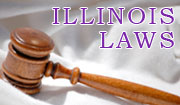Libraries

Cloning
A Guide to Selected Government Information Available at WIU's Government Publications Library
Web version of this guide includes links to web resources.
Federal Government Information
Cloning: A Select Chronology, 1997-2003
This report from the Congressional Research Service details events surrounding the cloning of Dolly, the sheep. 2003
http://www.cnie.org/nle/crsreports/03Apr/RL31211.pdf (PDF)
Human Cloning
A report concerning the governmental response to human embryo research.
http://digital.library.unt.edu/govdocs/crs//data/2005/upl-meta-crs-6460/RL31358_2005May20.pdf (PDF)
Cloning Human Beings
This two-volume set gives the recommendations of the National Bioethics Advisory Commission on the moral and ethical implications of cloning human beings. 1997
PREX 1.19:B 52/C 62/vols. 1 & 2
Cloning: Legal, Medical, Ethical, and Social Issues
A look at cloning possibilities, especially non-embryo cloning. 1998
Y 4. C 73/8:105-70
Biotechnology and the Ethics of Cloning
This hearing before the Committee on Science, Subcommittee on Technology, evaluates how far cloning technology should be advanced. 1997
Y 4.SCI 2:105/3
Review of the President's Commission's Recommendations on Cloning
An evaluation of the President's Commission findings on the moral and ethical dilemmas of cloning. 1997
Y 4.SCI 2: 105/19
Scientific Discoveries in Cloning
This hearing is the first time scientists, bioethicists, and Congressional representatives met since the cloning of Dolly the sheep to explore cloning facts, medical
implications, and public policy. 1997
Y 4.L11/4:S.HRG.105-22
"Remarks Announcing the Prohibition on Federal Funding for Cloning on Human Beings and an Exchange with Reporters."
A transcript of a speech by Bill Clinton banning the use of federal money for cloning humans is contained in this document.
Weekly Compilation of Presidential Documents. March 10, 1997 v33 n10 pp. 278-280
AE 2.109:33/10
The Prohibition of Federal Government Funding of Human Cloning Research
A hearing discussing the parameters for legislating the prohibition of federal funding for human cloning research without hindering biomedical and biotechnological therapies. 1997
Y4.SCI 2:105/32
"A Quicker Way to Clone."
This article discusses a new cloning technique in which specific regions of human DNA material are isolated and cloned into yeast cells. It is thought that this development
will help researchers to better understand and diagnose genetic diseases. 1996
Environmental Health Perspectives. Vol. 104 No. 6 pp. 616-618
HE 20.3559:104/6
Ethics and Theology: A Continuation of the National Discussion on Human Cloning
Philosophers, scholars, and theologians lend their voices to the ongoing discussion regarding the moral and ethical dilemmas inherent in human cloning. 1997
Y 4.L 11/4:S.HRG. 105-123
Legal Information
"No: the Potential for Good is too Compelling."
Cloning human beings could profoundly benefit the human race and should not be banned because of fear.
ABA Journal. May 1997 Vol. 83 p. 81 (1)
"Yes: Individual Dignity Demands Nothing Less."
Cloning of humans should be statutorily banned because it is an affront to human dignity.
ABA Journal. May 1997 Vol. 83 p. 81 (2)
"The Clone Age."
This article contains a round table discussion by a panel of experts. The panel discusses the possibility of cloning human beings and the legal implications of this act.
ABA Journal. July 1997 Vol. 83 p. 68
"Clone Bills, Clone Suits."
Implications of laws and regulations of cloning and genetic engineering are considered in this article.
The National Law Journal. April 7, 1997 Vol. 19 No. 32 p. A14 col. 3
"Is His Clone Bill Gates or Bill Gates Jr.?"
This is a review of how legal policy on family law, criminal law, and inheritance law would change if cloning was allowed.
The National Law Journal. March 24, 1997 Vol.19 No. 30 p. A23 col. 1
"Law and Nature Collide."
Creation of the first cloned animal introduces the debate of whether or not an animal can be patented.
The National Law Journal. June 6, 1997 Vol.19 No. 42 p. C1 col. 2
"Procreation by Cloning: Crafting Anticipatory Guidelines."
This article contributes to the policy discussion by identifying cloning's variation and by arguing for an expanded notion of a cloning policy that moves beyond the question of
whether a somatic cell nuclear transfer should be banned by law to the broader question of whether policy responses ought to be graduated according to the type of cloning at issue.
The Journal of Law, Medicine, & Ethics. Winter 1997 Vol. 25 No. 4 p. 273
"Family Planning Through Human Cloning: Is There A Fundamental Right?"
This Note argues that married individuals have a fundamental right to procreate using cloning in assisted reproduction.
Columbia Law Journal. Vol. 98, No. 6 October 1998 pp. 1461-1515
"Dollywood Is Not Just A Theme Park In Tennessee Anymore: Unwarranted Prohibitory Human Cloning Legislation and Policy Guidelines For A Regulatory Approach to Cloning"
This article offers that cloning and human cloning research should not be banned in the United States, but that regulatory legislation should exist.
The John Marshall Law Review. Vol. 31, No. 4 Summer 1998 pp. 1385-1422
"Human Cloning and Substantive Due Process"
An argument that human cloning as a reproductive technique is protected under the Due Process Clauses of the Fifth and Fourteenth Amendments.
Harvard Law Review. Vol. 111, No. 8 June 1998 pp. 2348-2365
http://www.wiu.edu/libraries/govpubs/guides/cloning.php
Subject Guides
- FDLP LibGuides
- Abortion
- Adoption
- Advertising and the Law
- Affirmative Action
- Agriculture
- AIDS
- Alcohol and Related Problems on Campus
- Alternative Dispute Resolution
- Alternative Medicine
- Americans with Disabilities Act
- Animal Research and Humane Care
- Asset Forfeiture
- Aviation Safety
- Capital Punishment
- Censorship - Nonpolitical
- Censorship - Political
- Child Abuse
- Child Care
- Children and Television
- Citizenship & Immigration Services
- Cloning
- Confined Animal Feeding Operations
- Cookbooks
- Cuban Missile Crisis
- Cybercrime
- DNA
- DNA Testing of Criminals
- Domestic Violence
- Drinking and Driving
- Drone Warfare
- Drug Legalization
- Drug Testing
- Earthquakes (Illinois)
- Eating Disorders
- Elder Abuse
- Electronic Surveillance
- Endangered Species and Wildlife Conservation
- Euthanasia
- Federalism
- Financial Crisis
- Flag Desecration
- Gangs
- Global Warming
- Gulf War Illness
- Gun Control
- Hate Crimes
- Hazardous Waste Disposal
- Health Care Reform
- Homelessness
- Home schooling
- Homosexuals in the Military
- Intellectual Property
- JFK Assassination
- Juvenile Justice
- Korean War
- Learning Disabilities
- Literacy
- Methamphetamine
- Occupational Health and Safety
- Operation Desert Shield/Storm
- Police Misconduct
- Pornography
- Prison Reform
- POW and MIAs
- Problems of Adolescence
- Product Liability
- Rape
- Reproductive Technology
- Same-Sex Marriage
- School Prayer
- School Violence
- Seat Belts
- Sexual Harrassment in Education
- Sexual Harrassment in the Workplace
- Sexual Orientation Discrimination
- Small Business
- Space Exploration
- Terrorism
- Tobacco
- Unmanned Aerial Vehicles
- Vietnam War
- Violence in Mass Media
- Welfare Reform
- Women in Business
- World War I
- World War II




